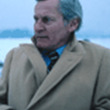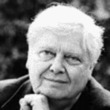The Pale King
(Libby/OverDrive eAudiobook)
Available Platforms
Description
More Details
Excerpt
Similar Titles From NoveList
Similar Authors From NoveList
Published Reviews
Booklist Review
*Starred Review* The overture to Wallace's unfinished last novel is a rhapsodic evocation of the subtle vibrancy of the midwestern landscape, a flat, wind-scoured place of potentially numbing sameness that is, instead, rife with complex drama. The Pale King is a feverishly encompassing, sharply comedic, and haunting work painstakingly assembled out of pieces rough and polished by Wallace's longtime editor, Michael Pietsch. Inevitably Wallace's long struggle with depression and 2008 suicide frame this churning tale of afflicted misfits who are drawn by some peculiar cosmic force to grimly regimented jobs at an Internal Revenue Service center in Peoria, Illinois. Yet this is not a novel of defeat but, rather, of oddly heroic persistence. Hypersensitive Claude Sylvanshine suffers from Random-Fact Intuition and fears that he's hard-wired for failure. Chris Fogle, who natters on in a stoner's stream of unnecessary detail, braves a record-breaking Chicago blizzard to get to an IRS recruitment office after witnessing his father's horrific death. Toni, who does not survive trailer-park violence unscathed, finds shelter in the rigidity of IRS work. Wallace fans won't be surprised when newbie David Wallace, carrying the stigmata of severe acne, not only becomes mired i. bureaucratic idioc. when he's mistaken for a senior examiner with the same name but also claims to be the author of thi. true and accurat. record. The real Wallace would have substantially revised this zealously researched, keenly internalized, tornadic novel. But the salvaged version is electrifying in its portrayal of individuals seeking unlikely refuge in a vast, absurd bureaucracy. In the spirit of Borges, Gaddis, and Terry Gilliam's Brazil (1985), Wallace conducts a commanding and ingenious inquiry into monumental boredom, sorrow, the deception of appearances, and the redeeming if elusive truth that any endeavor, however tedious, however impossible, can become a conduit to enlightenment, or at least a way station in a world wher. everything is on fire, slow fire. --Seaman, Donn. Copyright 2010 Booklist
Publisher's Weekly Review
A pile of sketches, minor developments, preludes to events that never happen (or only happen in passing, off the page), and get-to-know-your-characters background info that would have been condensed or chopped had Wallace lived to finish it, this isn't the era-defining monumental work we've all been waiting for since Infinite Jest altered the landscape of American fiction. (To be fair, how many of those sorts of books can one person be expected to write?) It is, however, one hell of a document and a valiant tribute to the late Wallace, being, as it is, a transfixing and hyper-literate descent into relentless, inescapable despair and soul-negating boredom. --The story ostensibly follows several recruits as they arrive at an IRS processing center in Peoria, Ill., in May 1985. Among them is David Foster Wallace, 20 years old and suffering "severe/disfiguring" acne. Everyone he encounters at the Peoria REC (Regional Examination Center; Wallace elevates acronyms and bureaucratic triple-speak to an art) is a grotesque: socially maladjusted, fantasizing of death (a training officer keeps a gun in her purse and "has promised herself a bullet in the roof of her mouth after her 1,500th training presentation"), and possessors of traumatic backstories. One recruit watches his father's death by subway car; another survives an adolescence of sustained and varied sexual abuse only to witness her mother's murder; another sweats constantly and so heavily that he dampens those unfortunate enough to be near him. These are the recruits training to become "wigglers," low-level IRS drones who crank out rote tax return reviews at Tingle tables (no etymology given) in the regional IRS office, calculating return-on-investment for potential audits and resigning themselves to a lifetime of tedium in an office where time is ticked off in fiscal quarters. They are only slightly aware of one another and exist as cameos outside of their own chapters. Meanwhile, a nebulous and menacing bureaucratic intrigue is afoot with the arrival of "fact psychic" Claude Sylvanshine, who is in Peoria to do advance work and intelligence gathering for his boss, Merle Lehrl, "an administrator of administrators" and dark puppet-master figure.--That's the structure. Wedged in are snapshots, character sketches, and anecdotes. There's a bombing at another IRS office, a mass poisoning, the specter of culture shift in the form of the "Spackman Initiative," a messy bureaucratic hangover spurred by a backlog-induced meltdown at another IRS office.--Stretches of this are nothing short of sublime-the first two chapters are a real put-the-reader-on-notice charging bull blitz, and the David Foster Wallace sections (you'll not be surprised to hear that these are footnoted) are tiny masterpieces of that whole self-aware po-mo thing of his that's so heavily imitated. Then there are the one-offs-a deadening 50-page excursion to a wiggler happy hour, a former stoner's lengthy and tedious recollection of his stony past-but this is a novel of boredom we're talking about, and, so, yes, some of it is quite boring. And while it's hard not to wince at each of the many mentions of suicide, Wallace is often achingly funny; a passage that begins "I have only one real story about shit. But it's a doozy" and ends with a "prison-type gang-type sexual assault gone wrong" is pants-pissingly hilarious.--Of course, this is an unfinished novel. It's sloppy at times, inconsistent in others, baggy here, too-lean there, and you rarely feel that the narrative is taking you somewhere. Instead, it's like you're circling something vague, essential, and frustratingly elusive. Yet, even in its incomplete state-Michael Pietsch, who assembled this from the reams of material Wallace left behind, deserves a medal and a bottomless martini-the book is unmistakably a David Foster Wallace affair. You get the sense early on that he's trying to cram the whole world between two covers. As it turns out, that would actually be easier to do than what he was up to here, because then you could gloss over the flyover country that this novel fully inhabits, finding, among the wigglers, the essence of our fundamental human struggles. Reviewed by Jonathan Segura (c) Copyright PWxyz, LLC. All rights reserved.
Library Journal Review
Unfinished at the time of Wallace's death, this novel was stitched together by his editor, Michael Pietsch, from notes and other material the author left behind. There's no real plot, but the story unfolds around an IRS agent in training, with unrelated asides throughout. Reader Robert Petkoff's voice drips with Wallace's irony. Though billed as fiction, the story was claimed by the author to be true. (LJ Xpress Reviews, 10/15/11; an LJ Best Book of 2011) (c) Copyright 2012. Library Journals LLC, a wholly owned subsidiary of Media Source, Inc. No redistribution permitted.
Kirkus Book Review
Rollicking postmodern romp, by the late cult-favorite novelist and essayist Wallace (with help from an editor), through the bowels of the IRS.Leave it to Wallace (Infinite Jest, 1996, etc.) to find fascination in the workings of a tax audit. Yet, with its mock-Arthurian title, his novel explores the minds and mores of the little men in the gray flannel suits, or at least their modern gray-souled counterparts. The story of the making of the novel is at least as interesting as the book itself: It was assembled, writes editor Michael Pietsch, from "a green duffel bag and two Trader Joe's bags heavy with manuscripts,"working from multiple drafts and notes and various other clues, but with no certainty that Wallace intended the book to have its current, somewhat lumpy shape. Neither would Wallace, obsessive perfectionist, allowed some of the sloppinesses and redundancies in the present version to stand. Thus it deserves its title-page rubric "An Unfinished Novel," and thus it should be thought of less as the last word by the late writerand certainly more manuscripts will be extracted from the vaults and publishedthan as a glimpse into his mind at work. And what a mind: Wallace was nothing if not thorough, and his tale of accountant Claude Sylvanshine, heroic traveler on bad commuter airlines and dogged reader of spreadsheets, is full of details, facts and factoids assembled over years of study and rumination. There's something of the author, perhaps, in Claude, but then there's something of him in the other characters, too, and it would be a mistake to read this as roman clef. All of Wallace's intellectual interests come through: the notes and asides, the linguistic brilliance, the fact piled atop fact, the excurses into entropy and, yes, autobiography ("Like many Americans," reads one note, "I've been sued...Litigation is no fun, and it's worth one's time and trouble to try to head it off in advance whenever possible.") Does it add up to a story? Not always. But there are many moments of great beauty, as with this small passage: "Drinion looks at her steadily for a moment. His face, which is a bit oily, tends to shine in the fluorescence of the Examination areas, though less so in the windows' indirect light, the shade of which indicates that clouds have piled up overhead, though this is just Meredith Rand's impression, and one not wholly conscious." Unfinished or no, it's worth reading this long, partly shaped novel just to get at its best moments, and to ponder what Wallace, that excellent writer, would have done with the book had he had time to finish it himself.]] Copyright Kirkus Reviews, used with permission.
Booklist Reviews
*Starred Review* The overture to Wallace's unfinished last novel is a rhapsodic evocation of the subtle vibrancy of the midwestern landscape, a flat, wind-scoured place of potentially numbing sameness that is, instead, rife with complex drama. The Pale King is a feverishly encompassing, sharply comedic, and haunting work painstakingly assembled out of pieces rough and polished by Wallace's longtime editor, Michael Pietsch. Inevitably Wallace's long struggle with depression and 2008 suicide frame this churning tale of afflicted misfits who are drawn by some peculiar cosmic force to grimly regimented jobs at an Internal Revenue Service center in Peoria, Illinois. Yet this is not a novel of defeat but, rather, of oddly heroic persistence. Hypersensitive Claude Sylvanshine suffers from Random-Fact Intuition and fears that he's hard-wired for failure. Chris Fogle, who natters on in a stoner's stream of unnecessary detail, braves a record-breaking Chicago blizzard to get to an IRS recruitment office after witnessing his father's horrific death. Toni, who does not survive trailer-park violence unscathed, finds shelter in the rigidity of IRS work. Wallace fans won't be surprised when newbie David Wallace, carrying the stigmata of severe acne, not only becomes mired in "bureaucratic idiocy" when he's mistaken for a senior examiner with the same name but also claims to be the author of this "true and accurate" record. The real Wallace would have substantially revised this zealously researched, keenly internalized, tornadic novel. But the salvaged version is electrifying in its portrayal of individuals seeking unlikely refuge in a vast, absurd bureaucracy. In the spirit of Borges, Gaddis, and Terry Gilliam's Brazil (1985), Wallace conducts a commanding and ingenious inquiry into monumental boredom, sorrow, the deception of appearances, and the redeeming if elusive truth that any endeavor, however tedious, however impossible, can become a conduit to enlightenment, or at least a way station in a world where "everything is on fire, slow fire." Copyright 2011 Booklist Reviews.
Library Journal Reviews
Partway through this compendium of materials discovered after Wallace's tragic 2008 suicide, a character conflated with the author by name and false protestations of memoir writing recalls a youthful moment of drug taking. He could, he explains, "not only hear the music and each note and bar and key change and resolution of each track, but know, with the same kind of awareness and discrimination, that I was doing this, meaning really listening…but also being aware of the exact feelings and sensations the music produced in me." That sentence replicates exactly the experience of reading this book, which seems less to describe than to embody, in a carefully calculated overflow of language, the events presented. Ostensibly, this is about a man who ends up working for the IRS in the 1980s, a time of major administrative shift from gray-flannel servitude to aggressive number cracking, while also giving the backstories of not only our protagonist but other characters who end up encapsulating the IRS's defining ennui. Verdict This book delivers the powerful sensation that we're awash in data that only certain people know how to control, and they control it to their advantage. It's unfortunate that we can't see how the brilliant Wallace might finally have exerted control here, but at least we're invited into his final thoughts on the limits of our culture. Read this not as a novel (not even as an unfinished one) but as fragments of profound meditation, and you'll be fine. [See Prepub Alert, 10/25/10.]-Barbara Hoffert, Library Journal (c) Copyright 2011. Library Journals LLC, a wholly owned subsidiary of Media Source, Inc. No redistribution permitted.
Library Journal Reviews
Partway through this compendium of materials discovered after Wallace's tragic 2008 suicide, a character conflated with the author by name and false protestations of memoir writing recalls a youthful moment of drug taking. He could, he explains, "not only hear the music and each note and bar and key change and resolution of each track, but know, with the same kind of awareness and discrimination, that I was doing this, meaning really listening…but also being aware of the exact feelings and sensations the music produced in me." That sentence replicates exactly the experience of reading this book, which seems less to describe than to embody, in a carefully calculated overflow of language, the events presented. Ostensibly, this is about a man who ends up working for the IRS in the 1980s, a time of major administrative shift from gray-flannel servitude to aggressive number cracking, while also giving the backstories of not only our protagonist but other characters who end up encapsulating the IRS's defining ennui. Verdict This book delivers the powerful sensation that we're awash in data that only certain people know how to control, and they control it to their advantage. It's unfortunate that we can't see how the brilliant Wallace might finally have exerted control here, but at least we're invited into his final thoughts on the limits of our culture. Read this not as a novel (not even as an unfinished one) but as fragments of profound meditation, and you'll be fine. [See Prepub Alert, 10/25/10.]-Barbara Hoffert, Library Journal (c) Copyright 2011. Library Journals LLC, a wholly owned subsidiary of Media Source, Inc. No redistribution permitted.
LJ Express Reviews
Partway through this compendium of materials discovered after Wallace's tragic 2008 suicide, a character conflated with the author by name and false protestations of memoir writing recalls a youthful moment of drug taking. He could, he explains, "not only hear the music and each note and bar and key change and resolution of each track, but know, with the same kind of awareness and discrimination, that I was doing this, meaning really listening…but also being aware of the exact feelings and sensations the music produced in me." That sentence replicates exactly the experience of reading this book, which seems less to describe than to embody, in a carefully calculated overflow of language, the events presented. Ostensibly, this is about a man who ends up working for the IRS in the 1980s, a time of major administrative shift from gray-flannel servitude to aggressive number cracking, while also giving the backstories of not only our protagonist but other characters who end up encapsulating the IRS's defining ennui. Verdict This book delivers the powerful sensation that we're awash in data that only certain people know how to control, and they control it to their advantage. It's unfortunate that we can't see how the brilliant Wallace might finally have exerted control here, but at least we're invited into his final thoughts on the limits of our culture. Read this not as a novel (not even as an unfinished one) but as fragments of profound meditation, and you'll be fine. [See Prepub Alert, 10/25/10.]-Barbara Hoffert, Library Journal (c) Copyright 2011. Library Journals LLC, a wholly owned subsidiary of Media Source, Inc. No redistribution permitted.
Reviews from GoodReads
Citations
Wallace, D. F., & Petkoff, R. (2011). The Pale King (Unabridged). Hachette Audio.
Chicago / Turabian - Author Date Citation, 17th Edition (style guide)Wallace, David Foster and Robert Petkoff. 2011. The Pale King. Hachette Audio.
Chicago / Turabian - Humanities (Notes and Bibliography) Citation, 17th Edition (style guide)Wallace, David Foster and Robert Petkoff. The Pale King Hachette Audio, 2011.
Harvard Citation (style guide)Wallace, D. F. and Petkoff, R. (2011). The pale king. Unabridged Hachette Audio.
MLA Citation, 9th Edition (style guide)Wallace, David Foster, and Robert Petkoff. The Pale King Unabridged, Hachette Audio, 2011.
Copy Details
| Collection | Owned | Available | Number of Holds |
|---|---|---|---|
| Libby | 2 | 0 | 0 |




































